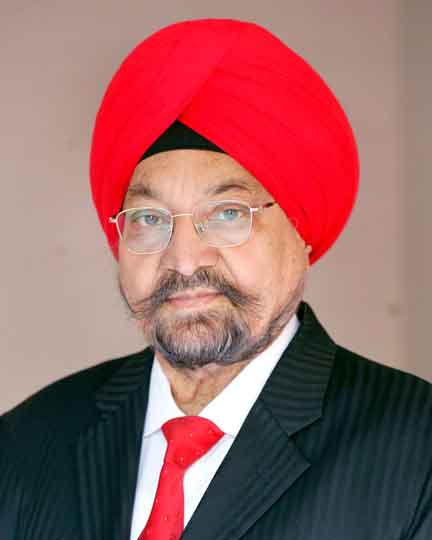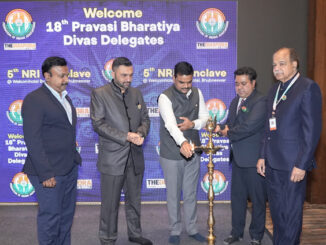
The 1984 anti-Sikh riots remain one of the darkest stains on India‘s history. The fact that it took 34 years to convict a single leader and that many others died without facing trial is a testament to the failures of the justice system. While the sentencing of Sajjan Kumar provided a small measure of justice, it came far too late for many victims.
The assassination of Prime Minister Indira Gandhi on October 31, 1984, by her Sikh bodyguards, Beant Singh and Satwant Singh, set off a horrific chain of events that led to one of the darkest chapters in India’s post-independence history. In the days following her killing, a pogrom was unleashed against the Sikh community in Delhi and other parts of India. Mobs, reportedly orchestrated and incited by political leaders, targeted Sikh homes, businesses, and gurudwaras. More than 3,000 Sikhs were brutally murdered, and thousands more were displaced. The violence, marked by extreme brutality, was widely seen as a state-sponsored massacre.
Despite the scale and nature of the violence, justice remained elusive for the victims and their families for decades. Successive governments failed to take decisive action, and many of those accused, including prominent political leaders, continued to hold positions of power. One such figure was Sajjan Kumar, a senior leader of the Congress Party, who was finally sentenced to life imprisonment in 2018—34 years after the pogrom, and he remained behind bars as the legal system slowly caught up with those responsible. His sentencing was a momentous but long-overdue step, illustrating the maxim that “justice delayed is justice denied.”
The anti-Sikh riots that erupted in Delhi and other parts of India from November 1-4, 1984, were not spontaneous acts of mob violence. They were widely believed to be organized, with Congress Party leaders allegedly directing the rioters and police standing by as Sikhs were killed. Eyewitnesses testified that the mobs were armed with voter lists to identify Sikh households. The rioters used petrol, kerosene, and tires to burn Sikh men alive, while women were assaulted and children killed mercilessly.
The violence was most pronounced in Delhi, where over 2,700 Sikhs were killed. Other affected areas included Kanpur, Bokaro, and other parts of Uttar Pradesh, Haryana, Madhya Pradesh, and Bihar. The police were accused of being complicit, either refusing to register complaints or actively supporting the rioters. The central government, led by Rajiv Gandhi, failed to intervene effectively, with the infamous justification that “when a big tree falls, the earth shakes.”
Over the years, multiple commissions and committees were formed to investigate the 1984 anti-Sikh pogrom. However, justice remained elusive due to deliberate delays, political interference, and lack of willpower to hold the powerful accountable. Some of the most prominent inquiries included:
Marwah Commission (1984): The first inquiry, led by Ved Marwah, was abruptly stopped by the government before it could complete its report.
Misra Commission (1985): This commission, led by Justice Ranganath Misra, was widely criticized for its bias in favor of the Congress Party. It absolved many top leaders of wrongdoing, further eroding Sikh trust in the system.
Jain-Banerjee Committee (1987): This committee recommended the prosecution of several Congress leaders, including Sajjan Kumar, but its findings were ignored.
Poti-Rosha Committee (1990) and Jain-Aggarwal Committee (1991): These commissions recommended further investigation but faced obstruction from political forces.
Nanavati Commission (2000-2005): After nearly two decades, this commission confirmed that Congress leaders such as Sajjan Kumar and Jagdish Tytler were involved. However, the government took little action.
Special Investigation Team (SIT) (2015): In 2015, the Narendra Modi government appointed an SIT to reopen cases, leading to the conviction of several perpetrators, including Sajjan Kumar.
Sajjan Kumar, a former Congress MP, was accused of inciting mobs to kill Sikhs in multiple locations in Delhi, including Sultanpuri, Mongolpuri, and other Sikh-dominated areas. Survivors and witnesses testified that he was seen directing the mobs and instructing them to attack Sikh homes and businesses.
Despite overwhelming evidence, he evaded justice for decades due to political patronage and a lack of prosecutorial effort. It was only in December 2018, after sustained pressure from Sikh advocacy groups and the reopening of cases by the SIT, that the Delhi High Court found him guilty of murder, rioting, and conspiracy. He was sentenced to life imprisonment, a landmark ruling that finally held a senior politician accountable. The judgment noted that the killings were “crimes against humanity” and emphasized the failure of law enforcement agencies in protecting Sikhs.
The 41-year delay in convicting Sajjan Kumar reflects the broader failure of India’s legal and political system in delivering justice for the 1984 victims. Many perpetrators, including prominent Congress leaders, never faced trial and died without punishment. Jagdish Tytler, another accused leader, continued to serve in various political capacities despite being named in multiple reports. Similarly, Kamal Nath, who was alleged to have played a role in the violence, went on to become a cabinet minister and Chief Minister of Madhya Pradesh.
For the Sikh community, the 1984 massacre remains an open wound. The lack of timely justice has deepened their sense of alienation and betrayal. Sikhs across the world, particularly in Canada, the UK, and the US, have consistently demanded accountability and recognition of the pogrom as an act of state-sponsored genocide. Many believe that the wounds of 1984 will never heal until every perpetrator is held accountable.
While Sajjan Kumar’s conviction was a symbolic victory, it was far from sufficient. Thousands of affected families continue to live with the trauma of 1984, knowing that many of those responsible escaped justice. The episode underscores the importance of independent investigations, judicial reforms, and political accountability to ensure that such massacres never recur.
Sikhs worldwide continue to remember and mourn the events of 1984, keeping the memories alive through protests, literature, and advocacy. The lessons from this tragic chapter serve as a reminder that justice delayed is indeed justice denied. India must ensure that such atrocities are never repeated and that those responsible, regardless of their political stature, are held accountable in a timely manner.
The delayed justice in the 1984 pogrom case raises critical questions about India’s legal system and political accountability. It exposes how powerful individuals can manipulate institutions to escape punishment. The lessons from 1984 are relevant even today, as instances of communal violence and political complicity continue to occur in India.





Nice history and narrative but felt it stopped half way and was abruptly ended. The timeline needs to be highlighted further. Thank you for highlighting the injustices. No wonder, why Sikhs pray for Khalsa Raj everyday.